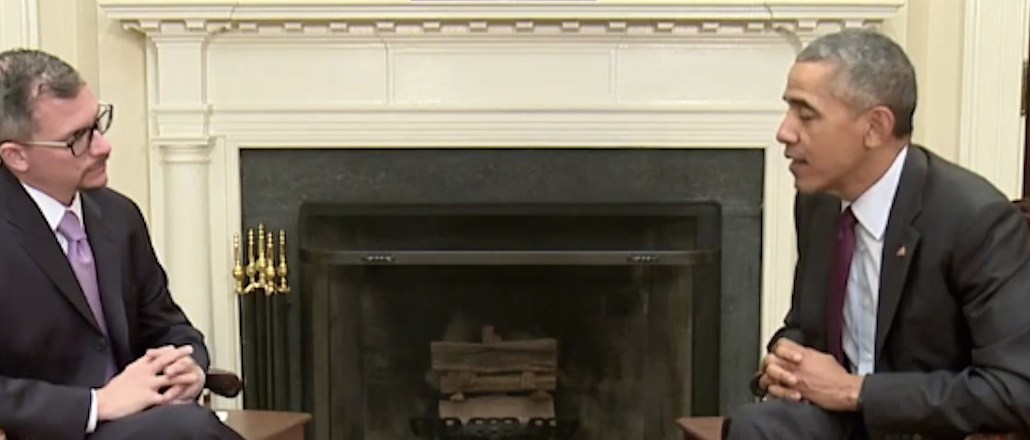Last chance to save on Digiday Publishing Summit passes is February 9
Tale of two platforms: BuzzFeed’s interview with Obama crashes on Facebook Live but not on YouTube

BuzzFeed was gunning for another breakout moment on Facebook Live today. It got one, but not the one it hoped for. The viral publisher’s highly publicized interview between BuzzFeed’s legal editor Chris Geidner and President Barack Obama today only lasted for about two minutes before the feed stopped working.
BuzzFeed pointed people to continue to watching the interview on its YouTube account, which had not crashed. BuzzFeed is one of the handful of publishers reportedly being paid $250,000 to experiment with Facebook Live — and urging its Facebook audience to switch platforms likely cost them viewers.
In the the two minutes it was airing on Facebook, the interview collected more than 59,000 viewers and very likely would have amassed more if its track record of other live videos were any indication (its famous exploding watermelon experiment collected 3.1 million viewers). On YouTube, the one-hour long interview garnered just 109,000 viewers total.
In the war between YouTube and Facebook for video supremacy, it appears the Google-owned platform won today’s battle. While Facebook can provide immediate scale and viewership numbers, YouTube proved to be the more stable platform. Facebook’s issues shows that it’s still ironing out the kinks as it continues to entice people to use it.
A BuzzFeed spokesperson told Digiday it had always planned on streaming to both platforms and doesn’t know why the Facebook feed disconnected. Meanwhile, frustrated Facebook Live viewers can always click over to this guy, who live streamed his wife giving birth today. Or maybe just watch the watermelon explode again.
More in Media

In Graphic Detail: The scale of the challenge facing publishers, politicians eager to damage Google’s adland dominance
Last year was a blowout ad revenue year for Google, despite challenges from several quarters.

Why Walmart is basically a tech company now
The retail giant joined the Nasdaq exchange, also home to technology companies like Amazon, in December.

The Athletic invests in live blogs, video to insulate sports coverage from AI scraping
As the Super Bowl and Winter Olympics collide, The Athletic is leaning into live blogs and video to keeps fans locked in, and AI bots at bay.





